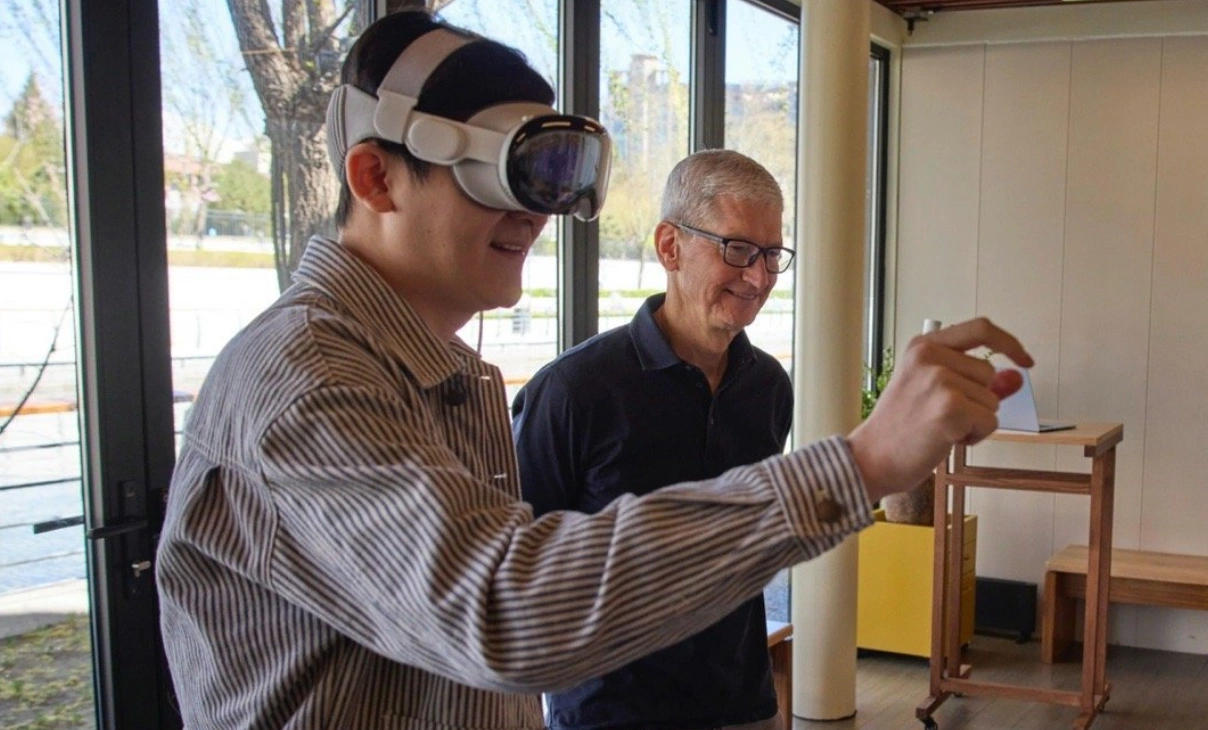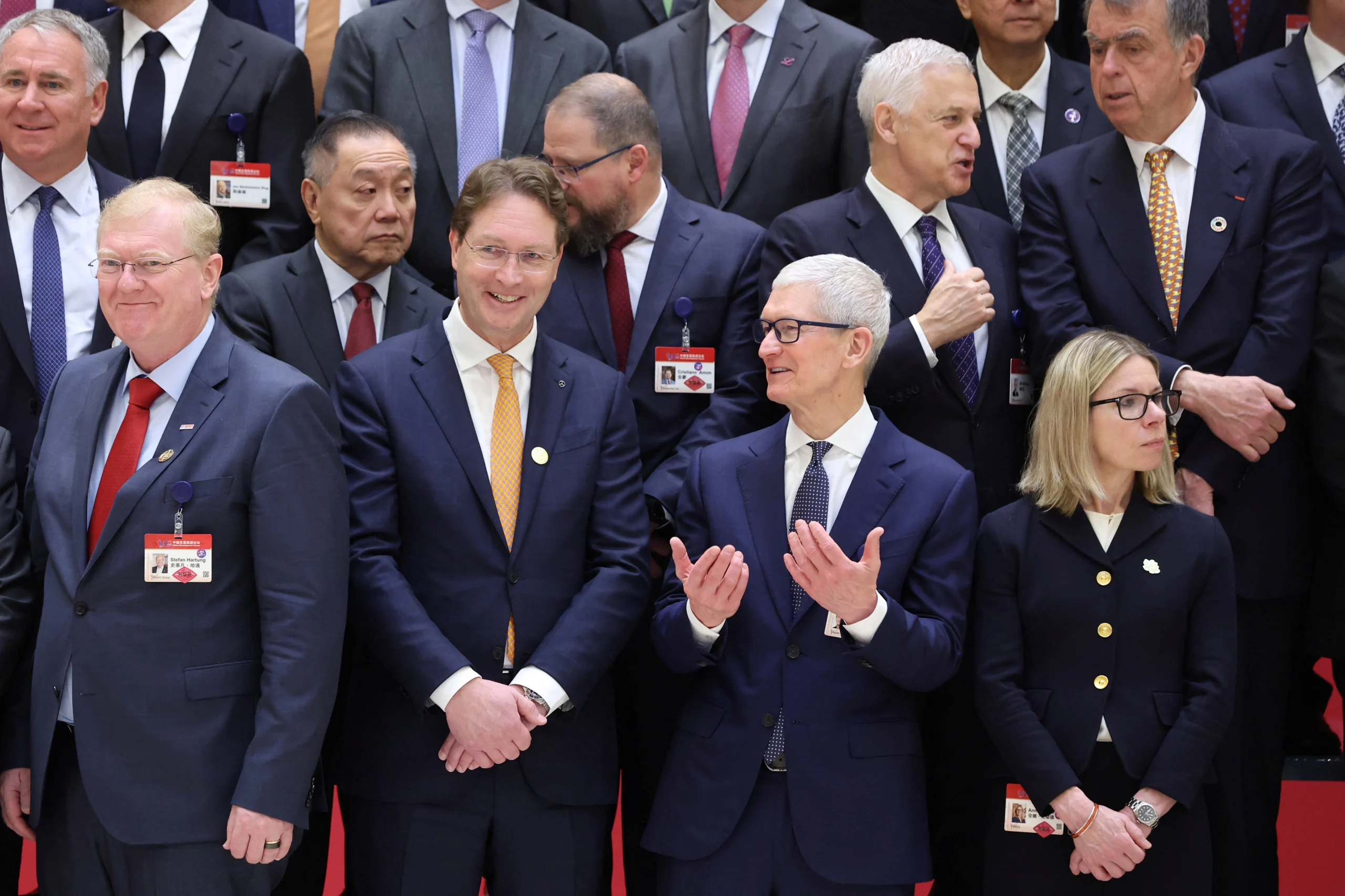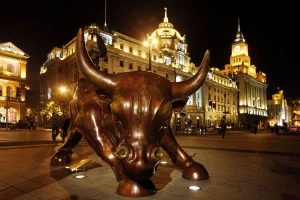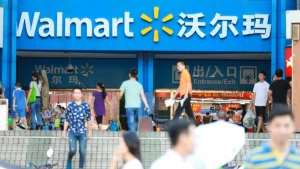China Drops the F-Bomb: FDI, FDI, FDI
Apple CEO Tim Cook has made his Beijing trip a high-profile affair: anyone active on Chinese social media would know he visited a local Apple Store and took a friendly stroll with Chinese internet influencers in a local park. Much like his later interview quote -“I love China; I love Chinese people”- the image Cook sought to form leaves nothing to the imagination-he IS a friend of China and intends to remain so, at least until Apple recovers from its sales slump in China in 2024.

Cook is among the 86 corporate leaders who attended the 2025 China Development Forum (CDF), held on March 23-24, as a part of a total of 750 foriegn representatives from business , government and academia. The forum saw U.S. as the country with the largest number of representatives, accounting for nearly one-third of the corporate delegation. Notable attendees include Pfizer CEO Albert Bourla, AstraZeneca CEO Pascal Soriot, and Qualcomm CEO Cristiano Amon. European representatives include Mercedes-Benz Chairman Ola Källenius and BMW Group Chairman Oliver Zipse.

U.S. Republican Senator Steve Daines, known for his close ties to US President Donald Trump, was also highlighted in media report for his appearance at the forum, interpreted as a harbinger for the potential meeting between Chinese President Xi Jinping and Mr.Trump.

It is clear that Beijing gathered an impressive audience to have its message heard, loud and clear, with no room of ambiguity. And what might that message be?
Chinese Premier Li Qiang: China Welcomes Foreign Investment
Delivering the opening address to the CDF on Sunday, Chinese premier Li Qiang called for more foreign companies to invest in China as China presses on its opening-up policy amid economic instability across the world. He emphasized the profitability for investing in China, saying that “Any product or service, when multiplied by the figure of 1.4 billion, will undoubtedly become a big business deal.” Li also highlighted that China’s economic growth target of 5% this year is, in itself, a manifestation of the government’s confidence in the country’s potential.

Apple swiftly announced the launch of a new phase of its Clean Energy Fund in China, with an investment totaling 720 million yuan, just one day after Li’s speech.
This is not the first time China has called for foreign capital. At the end of 2024, China rolled out a series of stimulus policies, placing foreign investment as a high priority in its economic agenda. As of 2024, China has completely removed all restrictions on foreign capital in the manufacturing sector. Wholly foreign-owned hospitals in trial cities were also granted the green light last November, and Tesla made headlines last July when it was added to the procurement lists for Jiangsu government and several state-owned enterprises in Shanghai.
More Signals:
Li Qiang’s unequivocal push for foreign investment is quite uncommon in China’s recent political climate—elevating the status of foreign capital risks downplaying the role of domestic drivers. And yet Huang Qifan, former mayor of Chongqing, echoed Li’s message once again at the Boao Forum for Asia on March 25. Huang, known for maintaining Chongqing’s double-digit growth rate during his tenure, is widely regarded as one of China’s most economically astute officials.

Huang highlighted the important role foreign enterprises play in Chinese economy by noting that “foreign enterprises account for 7% of China’s employment, yet they contribute 15% of the tax revenue generated by manufacturing enterprises, indicating their high efficiency. Foreign enterprises represent 30% of China’s manufacturing exports and 50% of high-tech, capital-intensive, and knowledge-intensive product exports. ”Huang also drew attention to the steady increase of foreign investment in China, notwithstanding the Sino-US trade war.
Why the More Explicit Tone Now?
There are three assumptions on which the consensus of Chinese scholars rest, and judging by recent Chinese policies, they seem to be shared by Chinese decision makers as well. These three assumptions serve as important impetus for China’s recent shift from a subtler tone to a more daring, even bold, call for foreign capital.
First of all, China’s manufaturing sector is trememdously resilient, as attested by its performance despite the blows of the trade war. Since Trump launched the trade war in 2018 and 2019, China’s share of global manufacturing has grown from about 27% in 2018 to approximately 31.6% in 2024.
Secondly, China didn’t flinch at technological war, and it won’t in the future. Take chip manufacturing for example, China’s production capacity now accounts for 35% of the global chip market in 2024, nearly doubling from its 2015 share.
Most importantly, a strategic window of opportunity has now presented itself for China. Quoting Chinese economist Liu Yuhui, the domestic partisan conflict, compounded by soaring national debt and high inflations, will force Trump to return to the negotiating table with China. Until then, China needs to stack more chips, and inviting foreign capital to jump on board the Chinese economy serves as a smart gambit.
Editor: huyueyue




Anonymous
It is a shame that you, Hu Olivia, paid so much attention to Apple and tim cook. You’re apparently not very much interested in the CEO’s of Siemens, Mercedes Benz, BMW or other German companies, who made huge investments in China. Shame on you, Olivia !
方腾波
14 of the 38 participants are American, 10 are German, 6 are British, 3 are French, 2 are Japanese, 2 are Korean, and one each from Switzerland, Denmark, and Sweden. There is also one from Brazil and one from Saudi Arabia.
That too is un-balanced. Way too much participants from the USA.